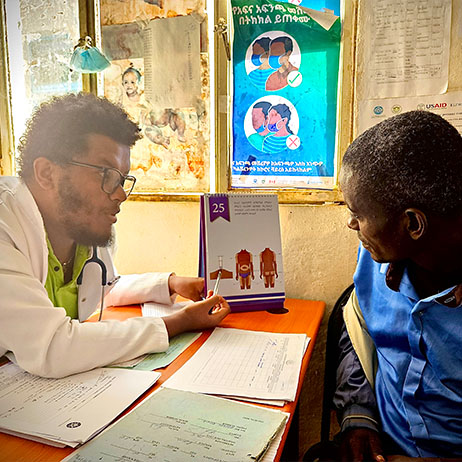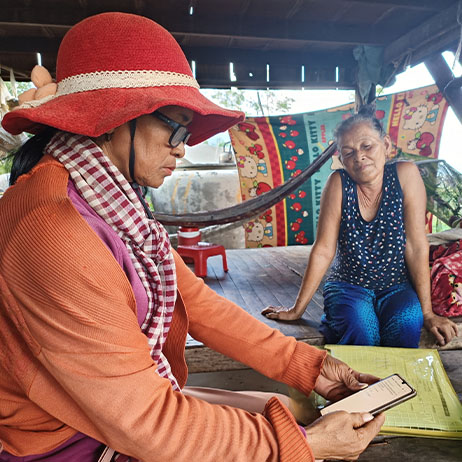November 13, 2025
Diabetes and Hypertension

Diabetes and Hypertension
The Issue
Non-communicable diseases (NCDs) are the leading cause of death and disability worldwide. They are responsible for about three quarters of fatalities globally, according to the World Health Organization. Diabetes and hypertension affect 422 million and over a billion people globally, respectively, with cases rising steadily. People in low- and middle-income countries are more likely to die from these diseases—and die sooner—than people living elsewhere. While a 10-year-old living with Type 1 diabetes in a high-income country will live to 71, in a low-income country, they will only live to 23.
People in low- and middle-income countries living with NCDs such as diabetes and hypertension deserve the same diagnostics, treatment, and monitoring that people living elsewhere have. Yet, deep inequities in access and the growing cost of care and commodities—both for those paying out-of-pocket and governments managing already overburdened health systems—make health outcomes far worse for people in these countries.

CHAI's Approach

CHAI takes a holistic approach to increasing access to diagnosis, treatment, and continued care for people living with diabetes and hypertension in low- and middle-income countries. We work hand-in-hand with governments to ensure our plans are sustainable and appropriate for local contexts and needs.
Our approach improves the delivery of NCD services by (1) laying the foundation to scale up quality delivery of services, (2) generating demand, primarily at the primary healthcare level, and (3) ensuring access to essential commodities.

To lay the foundation, we collaborate with policymakers to create supportive regulatory and policy environments. By improving data collection and analysis all the way from community clinics to the national level, we make available information needed to produce better health policies and programs. In addition, we help develop sustainable financing solutions for NCD programs to ensure long-term viability.
To generate demand, we support ministries of health to decentralize services, bringing them into communities so people can receive care earlier and more easily. This includes training healthcare workers and equipping them with high quality, up-to-date clinical guidance and tools.
In parallel, we work to make essential medicines and supplies available and affordable. For example, by helping to make forecasting and procurement processes more robust, we support governments to prevent stockouts and maintain a steady supply of the necessary drugs and diagnostics.
Results
Our Work



Join the Team
CHAI is looking for dynamic and self-motivated individuals who are committed to strengthening health systems around the world and expanding access to care and treatment of HIV/AIDS, malaria, and other illnesses.
View All CHAI Positions View Program Positions

Join the Team
CHAI is looking for dynamic and self-motivated individuals who are committed to strengthening health systems around the world and expanding access to care and treatment of HIV/AIDS, malaria, and other illnesses.
View All CHAI Positions View Program Positions




